Number Recognition Normal Matching Worksheets for Ages 4-6
6 filtered results
-
From - To
Enhance your child's number recognition skills with our engaging Normal Matching Worksheets designed specifically for ages 4-6. These activities provide a fun and interactive way for young learners to identify and match numbers through colorful illustrations and simple exercises. By working through these worksheets, children will develop foundational math skills while enjoying the process of learning. Perfect for homeschoolers and classroom use, our worksheets promote cognitive development and reinforce number concepts in an effective manner. Help your little ones build confidence in their math abilities with our thoughtfully crafted resources that make learning a joyful experience! Access now and watch them thrive!
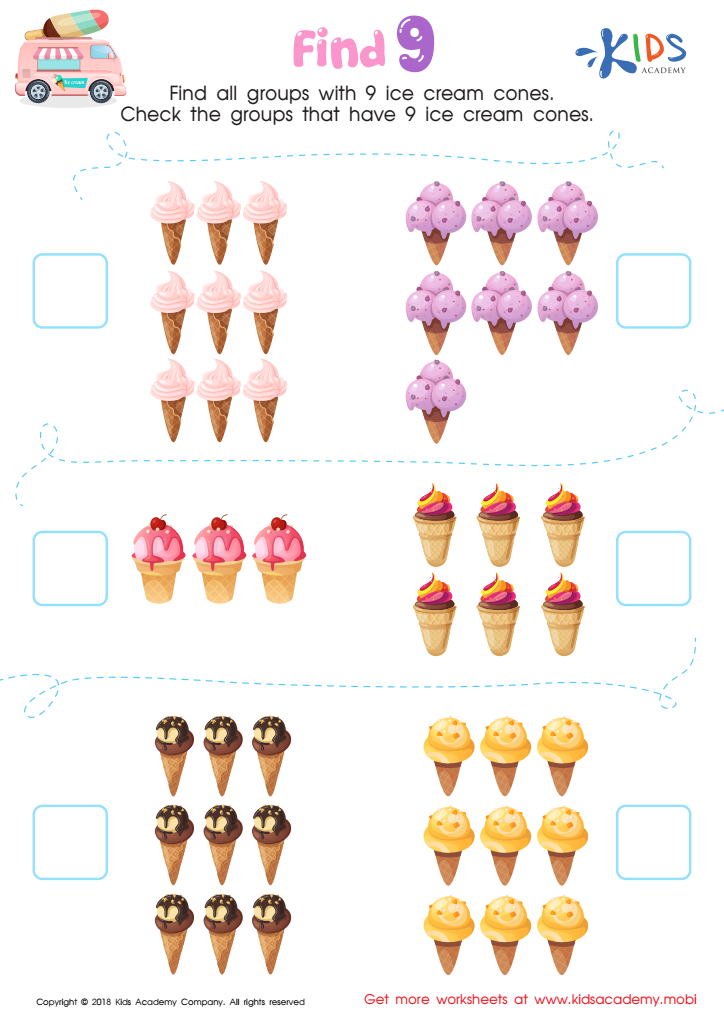

Find 9 Worksheet
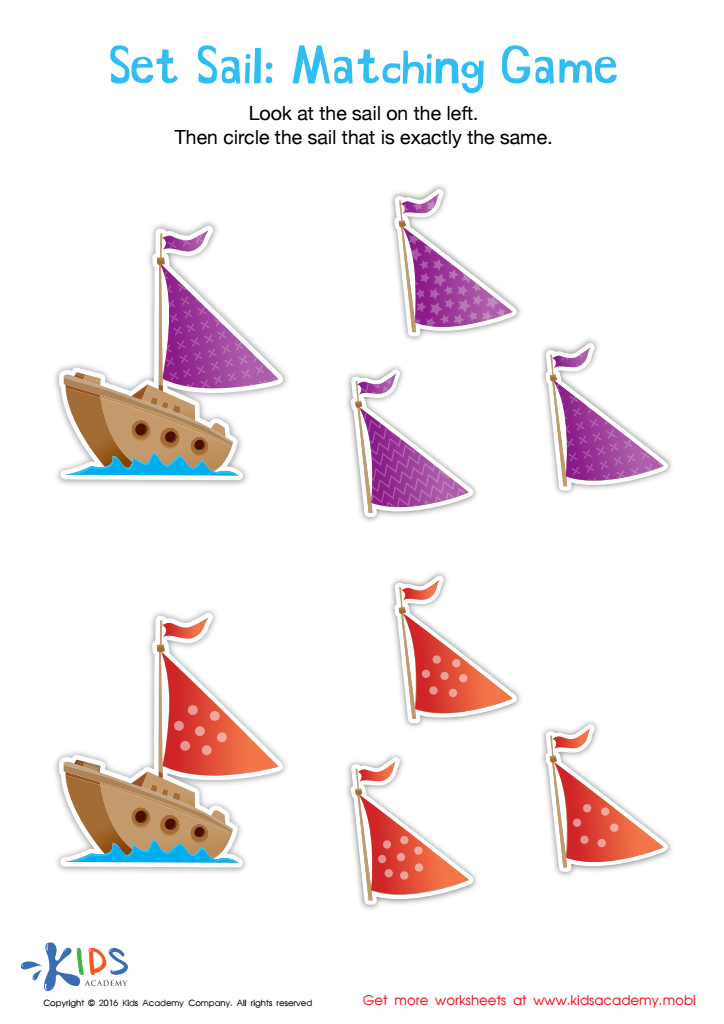

Set Sail Worksheet
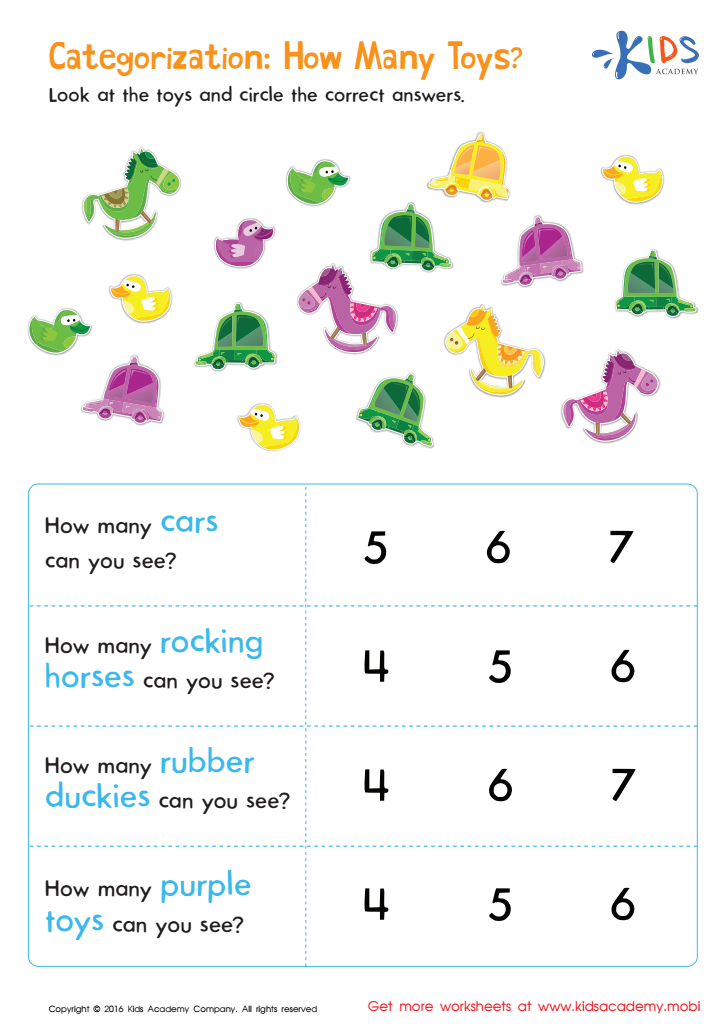

Classifying Toys by Type and Color Sorting Worksheet


Frog Countdown Worksheet
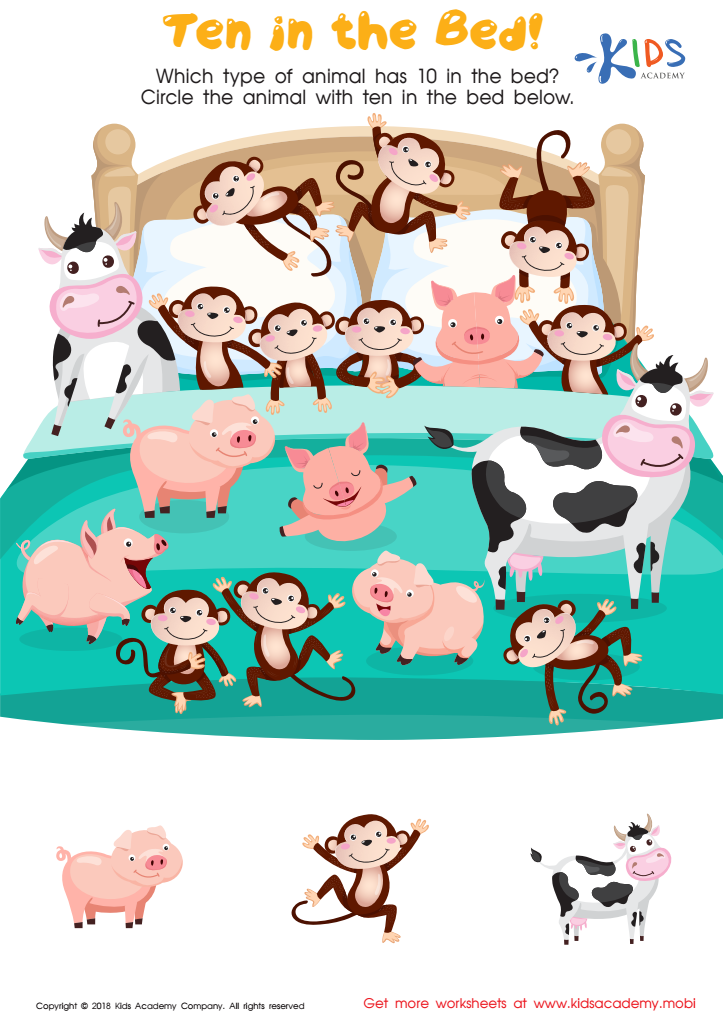

Ten in the Bed Worksheet
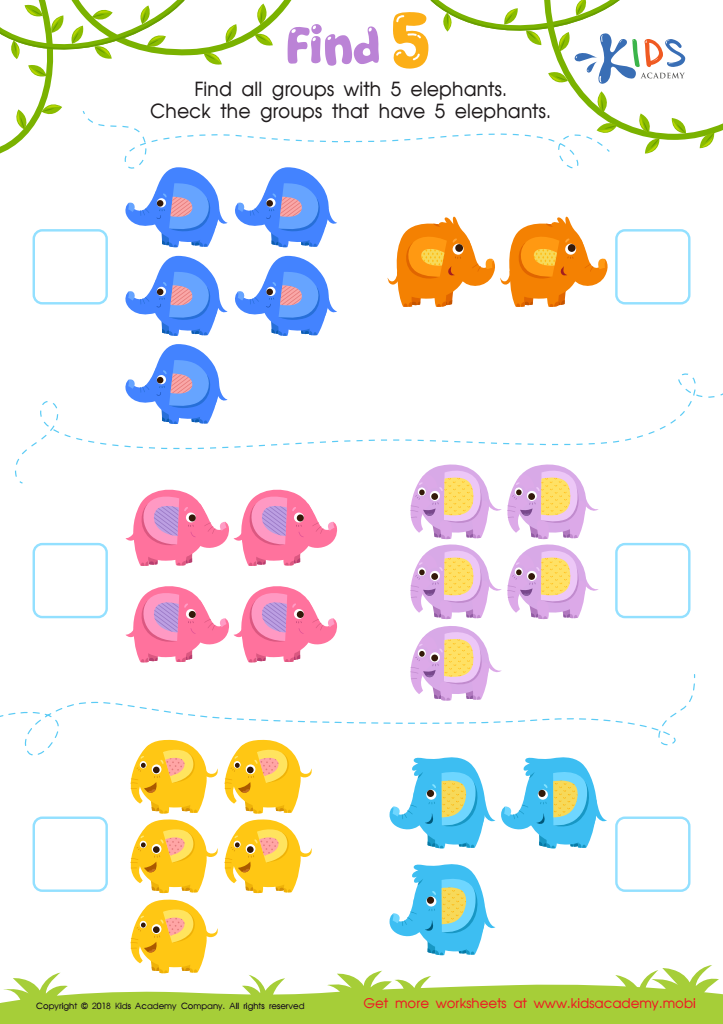

Find 5 Worksheet
Number recognition and normal matching skills are critical for children ages 4-6 as they form the foundation for mathematical understanding and overall cognitive development. During this formative stage, children are keen to explore and learn about the world around them, and recognizing numbers is a key aspect of this exploration. When parents and teachers prioritize number recognition, they equip children with the ability to identify numeric symbols and understand their values. This skill not only aids in mathematical activities but also in developing essential problem-solving strategies.
Normal matching—linking numbers to quantities—enables children to grasp the concept of quantity, enhancing their ability to engage with more complex math concepts later on. Fostering these skills through teamwork between parents and teachers creates a consistent learning environment, instilling confidence and curiosity in young learners.
Moreover, strong number recognition and matching abilities are linked to better academic performance, easing the transition into higher levels of education. With the increasing focus on STEM education, early mastery of these skills sets the stage for future learning and exploration in mathematics and beyond. Thus, investing time and resources into these areas leads to well-rounded and mathematically literate children.
 Assign to My Students
Assign to My Students















